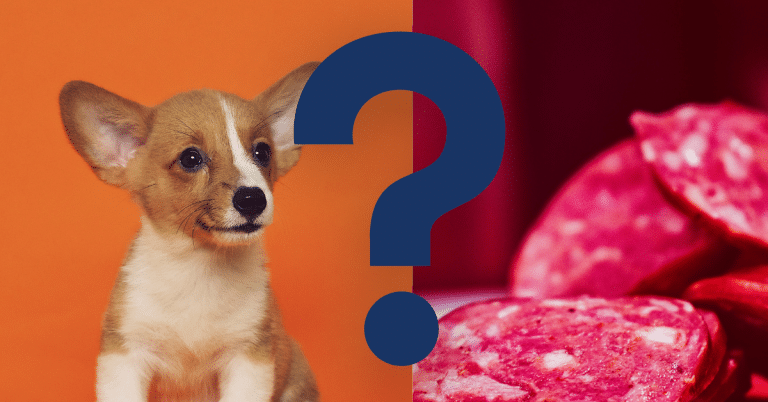Can Dogs Eat Bird Seeds? A Vet’s Opinion

Bird seeds usually contain grains and seeds but can dogs eat bird seeds.
Although most bird seeds are not poisonous to dogs, they are neither a desirable nor suggested food source for them. The nutritional demands of birds, which might be very different from those of dogs, are catered for in the formulation of bird seeds.
Let’s dive in:
Benefits Of Bird Seeds For Dogs
Due to their varied nutritional requirements, bird seeds are generally not advised as a dog’s main source of food, although there are some possible advantages to include modest amounts of bird seeds in a dog’s diet:
- Texture And Variation: Some dogs may find bird seeds to be enticing since they may give a new texture and variation to your dog’s diet. Your dog may find meals more engaging if you add modest amounts of bird seeds to their normal chow.
- Fiber: The presence of nutritional fiber in bird seeds, particularly seeds like sunflower seeds, may support dogs’ healthy digestion. Regular bowel motions and gastrointestinal health can both be supported by fiber.
- Sunflower seeds are a type of seed that contains protein. Even though dogs predominantly need animal-based protein, tiny doses of plant-based protein from seeds might complement their daily protein requirements.
- Natural Antioxidants: Natural antioxidants like vitamin E and selenium are present in some bird seeds. These antioxidants can strengthen the immune system and improve cellular health in general.
It’s crucial to remember that while there may be advantages to including tiny amounts of bird seeds in a dog’s diet, these should only be regarded as sporadic treats or supplements and not as the dog’s main source of nutrition. Dogs have unique nutritional needs that are best satisfied by balanced commercial dog food that has been created to offer the nutrients required for their health and wellbeing.
To make sure you’re giving your dog the right nutrients and avoiding any potential side effects of introducing new foods, it is advised to speak with a veterinarian before making any changes to your dog’s diet.

How To Safely Give Bird Seeds To Dogs
To prevent any potential health hazards or nutritional imbalances, it’s crucial to feed your dog bird seeds in a safe and supervised manner. Following are some suggestions:
- Consult Your Veterinarian: Speak with your veterinarian before adding any new foods, such as bird seeds, to your dog’s diet. They can offer advice depending on the dietary demands and medical conditions of your dog.
- Select High-Quality Seeds: If you decide to feed your dog bird seeds, select high-quality seeds that are free of pollutants like additives and pesticides. Avoid seeds that have undergone extensive processing or are covered with flavorings or salt.
- Giving your dog bird seeds is important, but only in moderation. They need to be an occasional treat or supplement, not a major component of their diet. Most of your dog’s nourishment needs to come from a commercial dog food that is well-balanced.
- Choose seeds that are suitable for dogs to eat, such as chia seeds, flaxseeds, pumpkin seeds, and sunflower seeds. These seeds include minerals, fibre, and good fats that may have some possible health advantages.
- Modest Portions: Only give your dog modest amounts of bird seeds. As a reward, a few seeds will typically do. Avoid overeating since excessive ingestion of seeds may cause intestinal problems.
- Watch For Allergies Or Digestive Problems: After swallowing bird seeds, keep an eye out for any allergic responses, gastrointestinal problems, or other negative reactions in your dog. Give them no more bird seeds if you see any bad consequences.
- Integrate With Usual Diet: If you want to provide your dog access to bird seeds, think about blending a tiny amount of them into their usual dog food. This might provide their meals a little more diversity.
- Seed Preparation: You may offer seeds uncooked, but in some circumstances, toasting or grinding them will improve your dog’s ability to digest and absorb the nutrients within them.
- Variety Is Key: If you want to add more nutrients to your dog’s diet, think about alternative dog-friendly meals including lean meats, veggies, and fruits that give a wider range of important nutrients.
- Be careful that some seeds, such as those from fruit pits or plants like grapes and raisins, can be poisonous to dogs and should be absolutely avoided.
Keep in mind that each dog is different from the others, so what works for one dog might not work for another. Prioritize the health and wellbeing of your dog by seeking a veterinarian’s advice before making any big dietary adjustments.
Will Bird Seeds Make A Dog Sick?
Dogs are not naturally poisonous to bird seeds, and tiny amounts are not expected to result in serious or acute illness. However, there are a few things to consider:
- Dogs’ digestive processes differ from those of birds; therefore, their bodies might not be able to fully metabolize some elements of bird seeds. A sudden or excessive introduction of bird seeds to their diet might cause digestive problems, including diarrhea, vomiting, or gas.
- Unbalanced Nutrition: Bird seeds are made for birds and may not have the right ratio of nutrients for dogs. Regular or excessive seed feeding to birds may eventually result in nutritional imbalances.
- Allergies: A dog might experience an allergic reaction to bird seeds, but this is quite uncommon and can happen with any new diet. After intake, keep an eye out for symptoms of itchiness, skin irritation, or stomach discomfort.
- Dogs, especially those of smaller types, may choke on some bird seeds, particularly bigger or tougher ones. Watch carefully the seeds’ size and firmness before offering them.
- Toxic Coatings: Some bird seeds sold commercially may have additives or chemicals applied to them to keep pests away or improve their appearance. It’s crucial to use bird seeds that are intended for human consumption or particularly labelled as safe for pets because these coatings might potentially be hazardous to dogs.
As stated earlier, it is preferable to give your dog bird seeds in moderation and only after contacting a veterinarian. If your dog unintentionally eats any bird seeds, keep a watchful eye on them for any negative effects. It is advised that you seek guidance from a veterinarian if you see any indications of suffering or pain in an animal.
In the end, even if modest amounts of bird seeds are unlikely to cause a dog to get extremely ill, it’s crucial to give priority to a balanced and adequate diet that satisfies your dog’s unique nutritional requirements.

A Vet’s Summary
Due to the nutritional disparities between the diets of birds and dogs, veterinarians typically advise against feeding bird seeds to dogs as their main source of food. The common viewpoint of veterinarians on this subject is as follows:
- Nutritional Unbalance: Bird seeds are made to specifically fulfil the dietary demands of birds, which are very different from those of dogs. Dogs must have a balanced diet that contains proteins, fats, carbs, vitamins, and minerals because they are omnivores. Dogs may not get all the necessary nutrients from bird seeds for good health.
- Risk Of Digestive Problems: Dogs’ digestive systems differ from those of birds’, thus introducing new meals like bird seeds suddenly might cause upset stomach. Your dog may have nausea, diarrhoea, or pain because of this.
- Alternatives That Are Healthier: Veterinarians typically advise feeding dogs premium commercial dog food that is formulated to contain all the essential nutrients. The nutritional requirements of dogs are met by these meals, which also support their general wellbeing.
- Treats And Supplements: It’s advisable to give your dog bird seeds sometimes as a treat or as a nutritional supplement rather than as their main source of food. When consumed in moderation, seeds like pumpkin seeds, flaxseeds, or sunflower seeds may have some advantages.
- Veterinarian Consultation: It’s important to speak with your vet before making any dietary modifications for your dog. They may offer tailored guidance depending on the age, breed, size, medical issues, and dietary needs of your dog.
- Veterinarians advise against giving dogs some seeds or poisonous foods like grapes, raisins, and fruit pits because of the potential risks. Additionally, certain bird seeds sold commercially may have been treated with substances toxic to dogs.
The stomach is home to a sizable component of a dog’s immune system. By encouraging the development of helpful bacteria that aid in the defence against dangerous infections, probiotics can improve the immune system of the gut.
In conclusion, even though bird seeds are not fundamentally poisonous to dogs, it is not advised to use them as a main source of nourishment owing to possible nutrient imbalances and digestive problems. To make sure you’re making decisions that promote your dog’s health and wellbeing, it is essential to consult a veterinarian before adding bird seeds to your dog’s diet.
Videos To Watch
If you are wondering what to feed your dog, watch this:
If you are wondering what is harmful for dogs, watch this:






